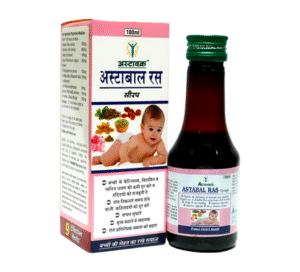If you’re a woman with thyroid issues, you know that managing your weight can be frustrating and challenging. Whether you struggle with hypothyroidism or hyperthyroidism, the impact on your metabolism can make it difficult to maintain a healthy weight. But fear not! In this blog post, we’ll explore some effective weight management strategies and proper supplements specifically tailored for women with thyroid issues. Best Health to balance diet and physical activities are :-
1.Maha Herbals Thyro Peace Tablets
Say goodbye to yo-yo diets and hello to sustainable habits that will help you feel your best inside and out. Let’s get started!
When it comes to weight management, women with thyroid issues face a unique set of challenges. The thyroid is a small gland in the neck that produces hormones that regulate the body’s metabolism. An imbalance in these hormones can lead to weight gain or difficulty losing weight.


There are a few key things to keep in mind when it comes to managing your weight with thyroid issues:
- Be patient. It can take some time to get your hormone levels back into balance. Don’t get discouraged if you don’t see results right away.
- Make healthy lifestyle choices. Eating a healthy diet and getting regular exercise are important for everyone, but they’re especially important if you have thyroid issues.
- Work with your doctor. Be sure to keep your doctor informed of any changes in your weight or how you’re feeling. They can help you adjust your medication if necessary.
Types of Thyroid Disorders in Women
There are many different types of thyroid disorders that can affect women. The most common type is called hypothyroidism, which occurs when the thyroid gland doesn’t produce enough of the hormone thyroxine. This can cause a number of symptoms, including fatigue, weight gain, and depression.
Other types of thyroid disorders include Grave’s disease, which is an autoimmune disorder that causes the thyroid to overproduce thyroxine, and Hashimoto’s disease, which is an inflammation of the thyroid gland. Both of these conditions can lead to weight gain, fatigue, and other symptoms.
If you think you may have a thyroid disorder, it’s important to see your doctor for a diagnosis. Treatment options vary depending on the type of disorder, but may include medication or surgery.
- Hashimoto’s Thyroiditis
If you have Hashimoto’s thyroiditis, you know that managing your weight can be a real challenge. The good news is that there are some strategies that can help.
First, it’s important to get enough iodine in your diet. This can be tough if you’re on a restricted diet, but there are some great iodine-rich foods out there, like seaweed and eggs. Talk to your doctor or nutritionist about how to make sure you’re getting enough iodine.
Second, exercise is key. It might be tough to find the motivation to workout when you’re not feeling your best, but it’s so important for keeping your metabolism going strong. Try to find an activity that you enjoy and make it part of your regular routine.
Third, manage stress levels. Stress can wreak havoc on the thyroid, so it’s important to find ways to relax and de-stress. yoga, meditation, and spending time in nature are all great ways to reduce stress levels.
fourthly , eat a healthy diet . This one is tricky because there are so many different opinions out there about what constitutes a “healthy” diet. However, in general, it’s important to focus on eating whole foods , limiting processed foods , and getting plenty of fiber , healthy fats , and vitamins & minerals . Again, speak with a doctor or nutritionist if you need help putting together a plan that works for you .
Last but not least , stay positive ! It
- Hypothyroidism
For women with hypothyroidism, weight management can be a challenge. The condition can cause fatigue, weight gain, and feelings of depression, which can make it difficult to stick to a healthy diet and exercise plan. However, there are some strategies that can help.
First, it’s important to get your thyroid hormone levels checked by a doctor and treated if necessary. This will help to regulate your metabolism and reduce some of the symptoms that can lead to weight gain.
Secondly, you may need to adjust your diet to account for the fact that hypothyroidism can slow down your metabolism. This means eating smaller meals more often throughout the day, and making sure to include plenty of lean protein, healthy fats, and fiber-rich foods.
Finally, regular exercise is an important part of any weight management plan, but it’s especially important for those with hypothyroidism. Exercise can help to increase energy levels and improve mood, both of which can make it easier to stick to a healthy lifestyle.
- Hyperthyroidism
There are a few things women with hyperthyroidism can do to manage their weight. First, they should avoid crash diets or fad diets, as these can actually make the condition worse. Second, they should make sure to get plenty of rest and exercise, as both of these help to boost metabolism. Finally, they should eat a healthy diet that includes plenty of lean protein, vegetables, and fruits.
Symptoms of Thyroid Issues in Women
There are a few key symptoms of thyroid issues in women to be aware of. These include fatigue, weight gain or difficulty losing weight, depression, anxiety, hair loss, dry skin, and constipation. If you are experiencing any of these symptoms, it’s important to see your doctor to get your thyroid checked.
Weight Management Strategies for Women with Thyroid Issues



There are a few things women with thyroid issues can do to manage their weight. First, it’s important to get your thyroid checked regularly by a doctor to make sure it’s functioning properly. If you’re on medication for your thyroid, be sure to take it as prescribed and talk to your doctor about any possible side effects.
Second, eat a healthy diet full of fresh fruits and vegetables, lean protein, and whole grains. Avoid processed foods, sugary drinks, and excessive amounts of caffeine. Get regular exercise, but avoid over-exercising, which can actually worsen thyroid function.
Finally, try stress-reduction techniques such as yoga or meditation. Managing stress is an important part of keeping your thyroid healthy and can help with weight management as well.
Eating a Balanced Diet Rich in Nutrients
A balanced diet is key for managing any chronic health condition, and thyroid issues are no different. Eating a diet rich in nutrients helps to support a healthy metabolism and keep your hormone levels in check. Here are some tips for eating a balanced diet when you have thyroid issues:
- Eat plenty of fresh fruits and vegetables. Aim for at least five servings per day.
- Include lean protein at every meal. Good sources include chicken, fish, tofu, legumes, and eggs.
- whole grains like quinoa, oats, and brown rice. Avoid processed or refined carbs like white bread and pasta.
- Limit unhealthy fats from fried foods, processed meats, and full-fat dairy products. Instead, focus on healthy fats like avocados, nuts, and seeds.
- Stay hydrated by drinking plenty of water throughout the day. Herbal teas can also be helpful in supporting a healthy thyroid gland.
Increasing Physical Activity and Exercise .
When it comes to weight management, physical activity and exercise are key. For women with thyroid issues, this is no different. There are a few things to keep in mind when increasing physical activity and exercise, however. First, be sure to listen to your body. If you are feeling fatigued or have other symptoms that are worsening with physical activity, it’s important to back off and talk to your doctor. Second, start slow and gradually increase your activity level as you feel comfortable. And lastly, choose activities that you enjoy and will stick with long-term.
With these things in mind, here are a few ideas for increasing physical activity and exercise:
- Taking a brisk walk daily – this can be done indoors or outdoors, depending on your preference and weather conditions.
- Joining an exercise class – there are many options available these days, from yoga to spin class to water aerobics. Find one that sounds fun and give it a try!
- Getting active at home – there are endless possibilities here, from dancing around the living room to working out with an at-home fitness program like P90X or Insanity.
- Going for hikes – take advantage of beautiful nature trails near you for a great workout while also enjoying some fresh air and scenery.
Stress Management Techniques
There are a number of things that you can do to manage stress when you have thyroid issues. Some stress management techniques include:
- Identifying your triggers: What are the things that trigger your stress? Once you know what these are, you can start to work on avoiding or managing them.
- Deep breathing exercises: Deep breathing helps to calm the mind and body. When you feel stressed, take a few minutes to focus on your breath and breathe deeply.
- Yoga or meditation: These activities can help to clear your mind and focus on the present moment. If you don’t have time for a class, there are plenty of apps or YouTube videos that can guide you through a session.
- Exercise: Exercise releases endorphins, which have mood-boosting effects. A moderate amount of exercise is the key here – too much can actually increase stress levels.
- Spending time in nature: There is something calming about being in nature. If possible, spend some time outside every day, even if it’s just for a few minutes.
Women with thyroid issues have many options when it comes to managing their weight. By making small changes such as exercising regularly, eating a balanced diet and avoiding processed foods, they can take the first steps towards successful weight management. Additionally, using medications or supplements prescribed by their doctor may also be beneficial in regulating hormones and helping them reach their desired bodyweight. With the right strategy in place, women with thyroid issues can make lasting progress towards achieving their health goals.























